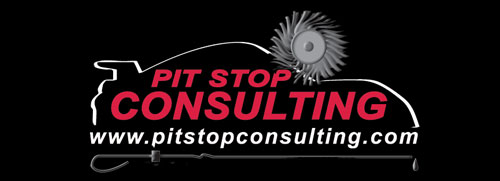CARS ARE GETTING MORE COMPLICATED: THE IMPORTANCE OF TRAINING
By Greg Byler
I have been known to go on and on about the importance of training. I do so because of the need I see on a daily basis and, unfortunately, it seems overall itʼs getting worse instead of better. True, there are more companies realizing that training is simply a cost of doing business, putting training in the yearly budget. Some of the better operators have gone as far as putting together a training department. Unfortunately, this is overshadowed by overwhelming number of other operators whose idea of training new employees is to simply assign them to vacuuming and tires their first month, hoping they will ʻcatch onʼ to the process. I refer to this as training via osmosis.
This brings me to the title of the article. The lube I started at many years ago had just opened when we encountered our first diesel with a canister oil filter. Canisters were not common back then, so when a canister filter was coming in the bay, the manager on duty would simply key on the filter and it was his job to complete the oil filter change. As we began seeing more canister oil filters, more people began getting trained on doing the canister oil filters. The manager trained himself out of the job, which left him to do more essential duties.
At that time, dealers saw oil changes as a waste of their time and gladly gave the oil change business away to fast lubes. Since then, there has been a shift in the mood of car manufacturers. In an attempt to get car owners back to dealers and away from fast lubes, auto manufacturers have made a concerted effort to make cars less serviceable to the average ʻdo it yourselferʼ. This sounds like a good thing for fast lubes, right? Doesnʼt fewer DIYers and more do-it-for me people mean more customers for lubes? Not necessarily. Here are a few things the dealers have done over the years to slow down DIYers and later fast lubes too.
First, there was the ʻcheck engineʼ light that seemed to go on and go off inexplicably. Soon after came ʻin-panʼ canister oil filters and oil filters that were located so that it made removal next to impossible unless you were double jointed. Vehicles that didnʼt need tune ups or coolant changes until 100,000 miles; ʻsealed for lifeʼ automatic transmissions, with no dipstick to check the level and no service intervals. Then there are the ʻdealer onlyʼ gear oil and lubricants. One of the latest variations is ʻchange oil soonʼ lights that are triggered not by the actual condition of the oil, but instead by algorithmic calculations.
The manufacturers are doing these things for the benefit of the dealers and for themselves as well. The more often a car (and therefore its owner) gets to the dealer, the higher the likelihood that the car owner will become a ʻnewʼ car owner. So whether itʼs the parts the manufacturers sell the dealers for repair or the new car that gets sold, big car manufacturers are winning by getting your customers back into their repair bays.
Many dealers have even taken matters in their own hands by building fast lubes into the service bays or even gone as far as constructing stand-alone lubes on the dealership property.
So what does this all have to do with training? By making regular maintenance harder for DIYers, manufacturers are forcing DIYers to become DIFMʼs banking on the consumer coming back to the dealer for service. These changes also make it harder for fast lubes to service cars. Training lube techs on proper procedures for servicing new makes is critical and practice makes perfect. This will pay off in customer confidence, as well as lower damage claims. When a DIYer brings in his new and seemingly complicated ʻhigh techʼ car to your shop, he will be paying close attention to how well you negotiate the service of his vehicle. When the lube tech proceeds very quickly and efficiently under the hood without hesitation, the car owner is put at ease and will feel comfortable and return again for service. Fumble through the service and he will search for other places to service his car. Chances are he will opt for the dealer. If we are going to keep up with the changes manufacturers are making, training is the only answer.
With flat or declining car counts, we cannot afford to lose a single customer.

